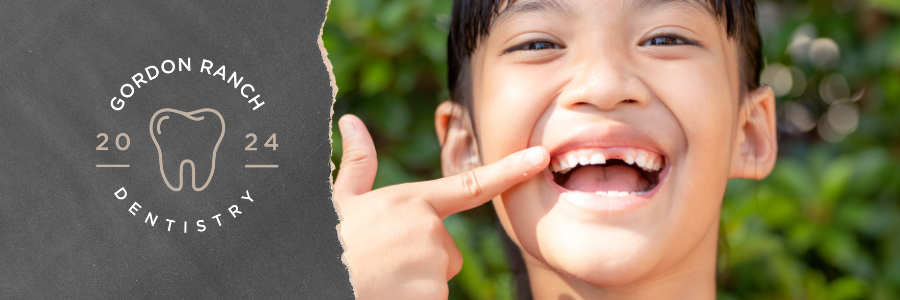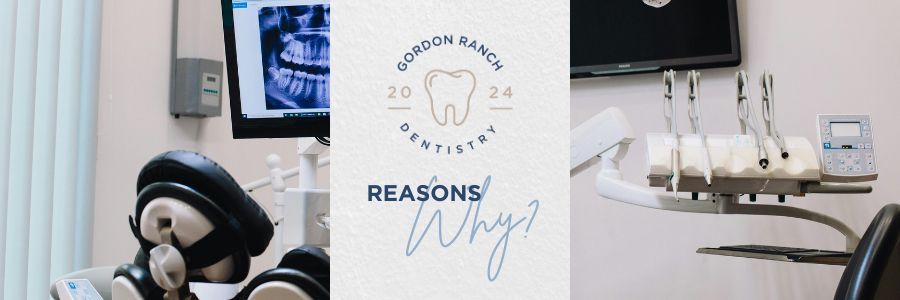Things You Should Never Do With a Broken Tooth Until You See a Dentist

Ignoring the Problematic Tooth
Delaying Professional Assessment
Putting off a visit to Gordon Ranch Dentistry after breaking a tooth can seem minor, especially if the pain isn't too bad. However, delaying professional assessment can lead to more serious problems. It's easy to think it will heal independently, but that's usually untrue. A dentist needs to evaluate the damage to prevent further complications.
Underestimating Potential Complications
It's tempting to think a broken tooth is just a cosmetic issue, but there can be more beneath the surface. You might not realize it, but a broken tooth can lead to:
- Infection
- Nerve damage
- Problems with your bite
Ignoring these potential issues can result in more extensive and costly treatments later on. What starts as a simple fix can become a significant dental problem if left unchecked. It's better to be proactive and get it checked out sooner rather than later.
Allowing Further Damage
Once a tooth is broken, it's more vulnerable to additional damage. Simple things like eating or even just talking can make the problem worse. Here are some things to consider:
- The broken area can be sharp and irritate your cheek or tongue.
- Bacteria can easily get into the exposed part of the tooth.
- The tooth can weaken over time, leading to more breakage.
Prompt treatment, such as Restorative Dentistry, is important to prevent further damage and protect overall oral health.
Attempting Self-Diagnosis or Treatment
It's tempting to play doctor when you've got a broken tooth, but trust me, that's a bad idea. You might think you know what's going on, but teeth are tricky, and what seems like a simple crack could be something way more serious. Leave the diagnosing to the pros at Gordon Ranch Dentistry. They have the tools and the know-how to determine precisely what's up and how to fix it.
Misinterpreting Symptoms
Tooth pain can be confusing. A minor sensitivity might seem like no big deal, but it could be a sign of a deeper problem, like an infection or nerve damage. Trying to guess what's wrong based on Dr. Google is a recipe for disaster. You might end up thinking you have a cavity when it's a fracture, or vice versa.
Applying Unverified Remedies
Many home remedies are floating around the internet, from oil pulling to clove oil. Some might offer temporary relief, but won't fix a broken tooth. Some of them could make things worse. For example, putting aspirin directly on your tooth can burn your gums. It's better to stick with tried-and-true methods like rinsing with warm salt water and taking over-the-counter pain relievers as directed until you can see a dentist.
Using Non-Dental Tools
I know it's tempting to poke around with whatever you have on hand – a toothpick, a safety pin, whatever. But using non-dental tools to fix or clean a broken tooth is terrible. You could easily damage the tooth further, introduce bacteria, or even injure your gums. Just don't do it. Seriously.
Trying to fix a broken tooth is like fixing your car engine with a butter knife. It's not going to work, and you're probably going to make things worse. Leave it to the professionals at Gordon Ranch Dentistry. They'll get you fixed up in no time.
Here are some things you should NOT do:
- Attempt to glue the tooth back together.
- Try to file down sharp edges yourself.
- Use tweezers or pliers to remove fragments.
Consuming Certain Foods and Beverages
Eating Hard or Crunchy Items
Eating hard or crunchy foods can mess with a broken tooth. Think about it: biting down on something like ice, nuts, or even a crunchy apple can put a lot of pressure on the damaged area. This can cause cracking and pain, even shifting the tooth further out of place. It's best to stick to softer foods that don't require much chewing until you can get to Gordon Ranch Dentistry.
Here are a few things to avoid:
- Hard candies
- Popcorn
- Raw carrots
Avoiding these foods can prevent additional damage and discomfort.
Drinking Sugary or Acidic Drinks
Sugary and acidic drinks are bad news for any tooth, especially one that's broken. Sugar feeds bacteria in your mouth, which can lead to more decay and infection around the broken tooth. Acidic drinks, like soda and juice, can erode the enamel, making the tooth even weaker. Water is always the best choice, but try sugar-free options and drink them in moderation if you need something else.
Things to consider:
- Limit soda intake
- Dilute juices with water
- Rinse your mouth with water after consuming sugary or acidic drinks
Chewing on the Affected Side
This one seems obvious, but it's worth mentioning. Chewing on the side with the broken tooth is just asking for trouble. It puts direct pressure on the damaged area, which can cause more pain, cracking, and even infection. Try to chew on the opposite side of your mouth as much as possible. This gives the broken tooth a break and prevents further irritation. It might feel weird at first, but your tooth will thank you. If you're having trouble avoiding chewing on that side, try cutting your food into smaller pieces or sticking to softer foods that don't require a lot of chewing.
Here are some tips:
- Be mindful while eating
- Cut food into smaller pieces
- Focus on chewing on the unaffected side
Applying Excessive Pressure to the Area
Probing With Your Tongue or Fingers
It's tempting to poke around a broken tooth, right? You just want to feel how bad it is. But honestly, that's one of the worst things you can do. Constantly touching the area with your tongue or fingers can introduce bacteria and further irritate the sensitive tissues. Plus, you might accidentally dislodge a loose fragment or make the break even bigger. Just leave it alone until you can get to Gordon Ranch Dentistry.
Grinding or Clenching Your Jaw
Do you grind your teeth, especially when stressed or asleep? A broken tooth can make that habit way worse. The added pressure can cause more damage and pain. If you know you're a grinder, try to be mindful during the day and relax your jaw. At night, a mouthguard from Gordon Ranch Dentistry might be a good idea to protect your teeth.
Using the Tooth for Biting
It might seem obvious, but avoid biting down on anything with the broken tooth. Even soft foods can put too much pressure on it. Stick to chewing on the other side of your mouth until you get it fixed. This will help prevent further cracking or chipping.
Think of your broken tooth like a sprained ankle. You wouldn't keep walking on it, would you? Give it a rest and let Gordon Ranch Dentistry take care of it.
Neglecting Oral Hygiene Practices
Skipping Brushing or Flossing
Brushing or flossing around a broken tooth might seem counterintuitive, but neglecting your oral hygiene can worsen things. Bacteria can accumulate around the damaged area, leading to infection and further complications. Think of it like this: you still need to clean the rest of your mouth, and avoiding the area entirely isn't the answer. Just be gentle!
- Use a soft-bristled toothbrush.
- Apply minimal pressure.
- Consider an antibacterial mouthwash (alcohol-free).
Ignoring your regular oral hygiene routine can introduce new problems, like gum disease, on top of the broken tooth. It's a recipe for disaster.
Using Harsh Mouthwashes
While mouthwash can be beneficial, some types are too harsh for a broken tooth. Mouthwashes containing high alcohol levels can irritate the sensitive tissues around the damaged area. It's best to stick with something gentle and alcohol-free. Gordon Ranch Dentistry recommends consulting your emergency dentist in Chino Hills for the best mouthwash options.
- Avoid alcohol-based mouthwashes.
- Look for fluoride rinses.
- Consider saltwater rinses as a gentle alternative.
Ignoring Food Debris Around the Tooth
Food particles trapped around a broken tooth can cause many problems. They can attract bacteria, leading to infection and inflammation. It's important to carefully remove any food debris without causing further damage. This might mean using a floss threader or a water flosser on a low setting.
- Use a floss to clean between teeth gently.
- Consider a water flosser on a low setting.
- Rinse your mouth thoroughly after meals.
Using Over-the-Counter Pain Relievers Incorrectly
Exceeding Recommended Dosages
It's tempting to take more pain medication than recommended when you're dealing with a throbbing toothache. However, exceeding the recommended dosage of over-the-counter pain relievers can lead to serious health problems. Always follow the instructions on the label or a healthcare professional's direction. Taking too much medication won't necessarily alleviate the pain faster and can put you at risk.
- Liver damage
- Kidney problems
- Stomach ulcers
Remember, pain relievers are meant to provide temporary relief. If your tooth pain is severe or persistent, it's a sign that you need to see a dentist at Gordon Ranch Dentistry for proper evaluation and treatment. Ignoring the underlying issue and simply masking the pain with excessive medication can lead to further complications.
Placing Medication Directly on the Tooth
A common misconception is that placing an aspirin or other pain reliever directly on the affected tooth will provide faster relief. This can harm your gums and oral tissues. The acidic nature of some pain relievers can cause chemical burns and irritation. It's always best to swallow the medication as directed.
- Chemical burns on gums.
- Tissue irritation
- Ineffective pain relief
Relying Solely on Pain Management
Over-the-counter pain relievers can help manage the discomfort associated with a broken tooth, but they are not a substitute for professional dental care. Relying solely on pain medication to mask the pain can delay necessary treatment and allow the underlying problem to worsen.
When you have a broken tooth, schedule an appointment with a dentist at Gordon Ranch Dentistry. They will assess the damage and recommend appropriate treatment to restore your tooth. Don't wait for further complications. The dentists at Gordon Ranch Dentistry, serving the Chino Hills Dental community, can help!
Wrapping Things Up
So, when you chip or break a tooth, it's a big deal. Don’t ignore it, get to a dentist as soon as possible. They know what they're doing and can help you avoid bigger problems. Taking care of your teeth is part of health care. A broken tooth needs professional attention. Don't wait around; make that appointment.




